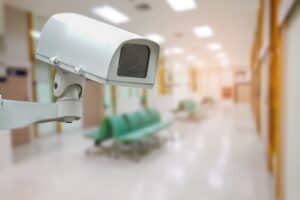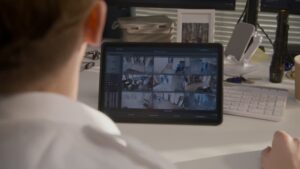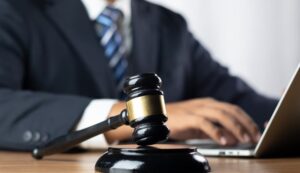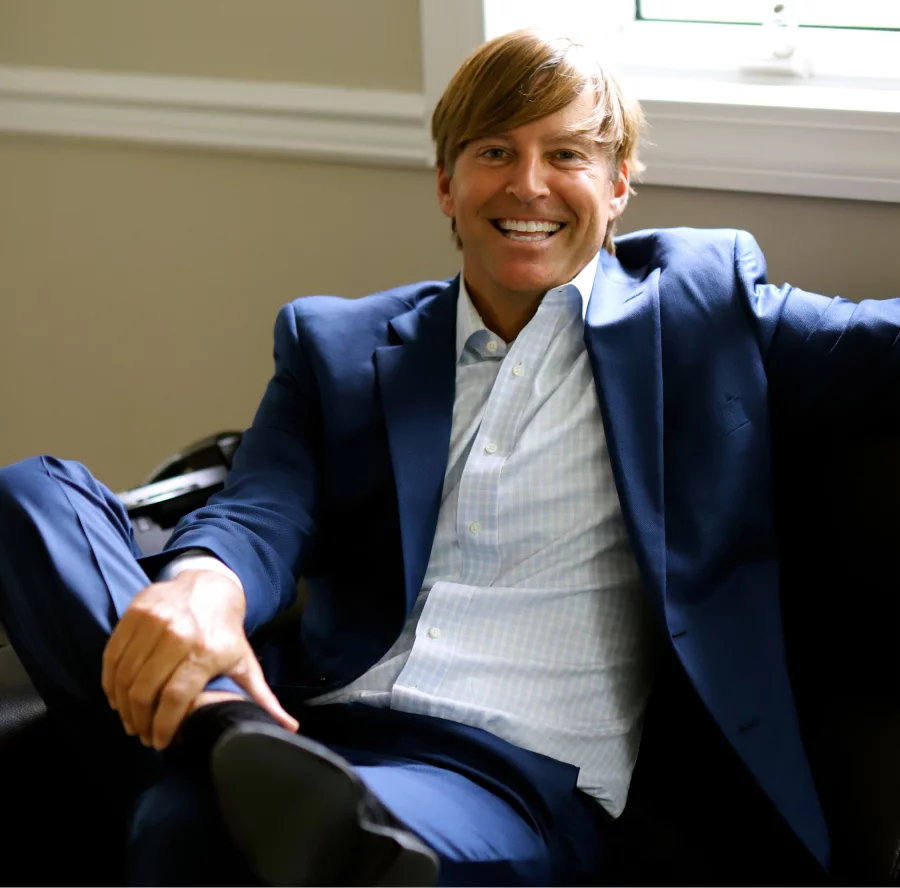How to Request Security Camera Footage After a Nursing Home Fall
Nursing Home AbuseNursing home falls represent one of the most common and devastating incidents affecting elderly residents in care facilities across the U.S. When your loved one suffers an injury from a fall in a nursing home, you may have questions about what really happened and whether the facility provided adequate care and supervision. Security camera footage can provide invaluable evidence to help determine the circumstances surrounding the incident and whether negligence was a contributing factor.
If you suspect your family member sustained injuries due to substandard care or unsafe conditions, it’s important to schedule a free consultation with an experienced nursing home neglect attorney immediately. They can help you understand your legal options, protect you from corporate insurance companies, and secure video evidence before it is lost or destroyed.
Understanding Nursing Home Surveillance Systems

Most nursing homes today utilize comprehensive surveillance systems to monitor common areas, hallways, dining rooms, activity spaces, and entrances throughout their facilities. However, privacy laws in many states strictly prohibit the installation of security cameras in residents’ private rooms, bathrooms, or other areas where individuals have a reasonable expectation of privacy without explicit consent from the resident or their legal representative.
While some facilities may allow families to install personal monitoring devices in their loved one’s room with proper authorization, the facility’s surveillance network typically focuses on public spaces where staff interactions and resident activities can be observed for safety and security purposes.
Who Can Request Nursing Home Surveillance Footage?
Not everyone has the legal right to request and obtain surveillance footage from nursing home facilities. Access to security camera recordings is typically restricted to protect resident privacy and comply with healthcare regulations. The following individuals may be able to obtain surveillance footage:
- Residents themselves (if mentally competent)
- Legal guardians or conservators
- Power of attorney holders with healthcare authority
- Family members named as healthcare proxies
- Court-appointed representatives
- Attorneys representing residents or families in legal proceedings
- Law enforcement officers conducting investigations
- State regulatory agencies during inspections or investigations
Nursing homes may initially resist providing footage without proper legal channels. Facilities often cite privacy concerns, operational policies, or legal requirements as reasons for denying requests. Having proper legal representation can significantly improve your chances of successfully obtaining the evidence you need to understand what happened during your loved one’s fall.
How to Request Security Camera Footage After a Nursing Home Fall
When requesting surveillance footage after a nursing home fall, timing and approach are critical factors that can determine whether you’ll be able to obtain the evidence you need. Many facilities have automatic deletion policies for security recordings, typically retaining footage for only 30 to 90 days before it’s permanently erased from their systems. Acting quickly ensures that valuable evidence isn’t lost forever due to routine data management practices.
Determine if You Have Legal Standing
Before making any formal requests for surveillance footage, you need to establish that you have the legal authority to access such information on behalf of your loved one. Family relationships alone don’t automatically grant you the right to obtain private healthcare-related documentation or security recordings from nursing facilities.
Nursing home neglect attorneys can identify the legitimacy of your claim during their free consultations, helping you understand your legal standing and the strength of your case before you invest time and resources in pursuing evidence. Legal counsel can also gather the necessary documentation to prove your authority to act on your family member’s behalf.
Formal Written Request
Once you’ve established your legal standing, the next step involves submitting a formal written request to the nursing home administration for access to surveillance footage from the time surrounding your loved one’s fall. Your request should specify the date, time, and location of the incident and clearly state your relationship to the resident and your legal authority to make such a request. Include copies of relevant documentation such as power of attorney papers, guardianship orders, or other legal documents that establish your right to access information on the resident’s behalf.
Seek Legal Counsel
Working with an experienced nursing home abuse lawyer can dramatically improve your chances of successfully obtaining surveillance footage and building a strong case. Legal professionals are well-versed in the complex regulations governing nursing homes and can provide the support and reassurance you need during this difficult time. They also have experience dealing with facilities that may be reluctant to cooperate with evidence requests. Benefits of legal representation include:
- Knowledge of federal and state privacy laws affecting healthcare facilities
- Experience with nursing home documentation and evidence preservation requirements
- Ability to issue formal legal demands and subpoenas when necessary
- Understanding of deadlines and procedural requirements for evidence collection
- Relationships with investigators and medical professionals who can analyze footage
Attorneys can also help you understand the broader legal landscape surrounding your case and identify other potential sources of evidence. Many nursing home abuse lawyers work on contingency fee arrangements. That means their fees are contingent on winning your case. You pay nothing if they don’t secure compensation. Legal representation establishes a level playing field when negotiating with large healthcare corporations and their legal teams.
Documentation and Preservation
Proper documentation and evidence preservation are essential components of any successful nursing home fall or negligence claim. Beyond surveillance footage, numerous other forms of evidence can support your case and help establish what happened during your loved one’s fall. Working systematically to gather and preserve all relevant documentation helps ensure that vital evidence isn’t lost or destroyed. Documentation that your lawyer may gather and preserve includes:
- Medical records from before, during, and after the incident
- Incident reports filed by nursing home staff
- Witness statements from other residents, visitors, or staff members
- Photographs of the fall location and any hazardous conditions
- Communication records between the family and the facility staff
- Care plans and assessment documentation
- Staffing records showing who was on duty during the incident
Legal professionals can help you identify additional sources of evidence and ensure that all documentation is adequately preserved and authenticated for potential use in legal proceedings. They can also work with the nursing home to prevent the destruction of relevant records and footage while your case is being evaluated. Early intervention by an attorney often prevents facilities from claiming that evidence was routinely destroyed or is no longer available.
Report the Nursing Home Fall
In addition to gathering evidence, it’s necessary to report the incident to the appropriate regulatory authorities that oversee nursing home operations in your state. This step is critical in holding the facility accountable and ensuring the safety of other residents. Most states have dedicated agencies that investigate complaints against long-term care facilities and can conduct independent investigations into allegations of neglect or abuse.
Filing official complaints creates an additional paper trail and may prompt regulatory inspections that uncover systemic problems at the facility. Law enforcement may also need to be involved if the fall resulted from criminal negligence or if there are signs of intentional harm.
How Important is Surveillance Footage as Evidence in Elder Abuse Cases?

Surveillance footage serves as one of the most powerful forms of evidence in nursing home abuse and neglect cases because it provides an objective, real-time record of events that can’t be disputed or altered after the fact. Unlike witness testimony, which can be unreliable or biased, security camera recordings provide an accurate account of what happened during the specified time. Video evidence can corroborate or contradict staff accounts of incidents, helping to establish whether staff followed safety protocols. Security cameras may capture evidence of various types of incidents and misconduct:
- Slip and Falls: Cameras can reveal wet floors, broken equipment, or other hazardous conditions contributing to a resident’s fall. They also show whether staff members were present to provide necessary assistance or supervision when accidents occurred.
- Neglect: Video footage documents when staff members ignore residents‘ calls for help or fail to check on vulnerable individuals. Recordings can also reveal extended periods when residents are left unattended without proper care or supervision.
- Physical Abuse: Surveillance systems capture inappropriate physical contact, rough handling, or intentional harm inflicted by caregivers. Video evidence provides clear documentation of staff members who use excessive force or engage in abusive behavior.
- Emotional or Psychological Abuse: Cameras with audio capabilities can record verbal harassment, threats, or intimidating behavior directed at residents. Visual footage also captures non-verbal forms of psychological mistreatment, such as isolation or humiliation.
Video footage can make the difference between a successful legal claim and one that fails due to a lack of concrete evidence. Courts and juries find visual evidence particularly compelling because it allows them to see precisely what occurred rather than relying solely on conflicting testimony from interested parties. Strong video evidence often leads to faster settlements and better outcomes for families seeking justice for their loved ones.
Potential Challenges in Using Security Footage for Falls and Abuse Claims
While surveillance footage can provide powerful evidence, obtaining and using such recordings in legal proceedings isn’t always straightforward. Nursing homes may claim that cameras weren’t functioning properly during the relevant time or that privacy concerns prevent them from releasing recordings. Some facilities may also argue that their internal policies prohibit sharing surveillance footage with outside parties. Additional challenges include the following:
- Automatic deletion policies that erase footage after short retention periods
- Technical malfunctions or maintenance issues affecting camera operations
- Poor video quality makes it difficult to see important details
- Camera positioning that doesn’t capture the specific area where incidents occurred
- Privacy objections from the facility or other residents’ families
- Complex legal procedures required to obtain footage through court orders
Despite these potential obstacles, experienced nursing home abuse lawyers know how to overcome many of these challenges. They can work with technical professionals to enhance and analyze available footage. The state jurisdiction where the nursing home is located determines the statute of limitations for filing these claims or lawsuits, making it important to act quickly to preserve your legal options. Some states allow only one to two years from the date of discovery to file a lawsuit; others may provide more extended periods.
Why You Need a Nursing Home Abuse Lawyer

Proving negligence in nursing home fall cases requires demonstrating that the facility failed to meet the standard of care owed to residents and that such failure directly caused or contributed to your loved one’s injuries. Legal standards for negligence can be complex, involving detailed analysis of industry standards, facility policies, and regulatory requirements. Without an experienced nursing home abuse attorney, families often struggle to gather sufficient evidence or present their case effectively against well-funded healthcare corporations. Professional legal representation provides several advantages:
- Case Evaluation and Investigation: Attorneys can quickly assess the strength of your claim and identify the most promising legal theories. They work with investigators and medical professionals to build comprehensive cases.
- Evidence Gathering and Preservation: Lawyers know how to obtain documentation and footage that families might be unable to access on their own. They can issue subpoenas and court orders when facilities refuse to cooperate voluntarily.
- Medical Record Analysis: Legal teams work with healthcare professionals to review complex medical documentation and identify signs of substandard care. They can spot patterns of neglect that might not be obvious to non-professionals.
- Negotiation and Settlement: Experienced attorneys understand the value of nursing home injury cases and can negotiate effectively with insurance companies. They know when to accept reasonable settlement offers and when to proceed to trial.
- Trial Advocacy: If your case goes to court, you need lawyers who understand how to present evidence effectively and argue persuasively before juries. Courtroom experience makes a significant difference in trial outcomes.
Nursing home corporations typically have teams of lawyers working to minimize their liability and protect their financial interests. Having your own legal advocate ensures that your family’s rights are protected throughout the process. Most nursing home abuse attorneys work on contingency fee arrangements—you only pay if they secure compensation. That means there is no financial risk in obtaining quality legal representation.
Speak to an Experienced Nursing Home Abuse Lawyer
If your loved one has suffered an injury in a nursing home fall, don’t wait to seek legal guidance about your options for obtaining surveillance footage and pursuing a claim for damages. Time often works against families in these situations, as evidence can be lost or destroyed if action isn’t taken promptly. If your loved one suffered an injury in a negligent nursing home fall, schedule a free consultation with a personal injury lawyer serving Charleston now.

Nathan Hughey, an attorney and fourth-generation South Carolinian, founded Hughey Law Firm in 2007. Before that, he spent five years defending nursing homes and insurance companies. Leveraging his experience, he now advocates for those injured or wronged by such entities, securing over $290 million in verdicts and settlements.